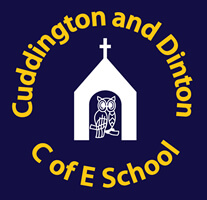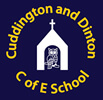Maths at Cuddington and Dinton
Intent
At Cuddington and Dinton C of E, school we provide a high-quality and challenging approach to maths. We have adopted a mastery approach to deliver the three main aims of the National Curriculum.
Our Mastery approach places emphasis on the cumulative mastery of essential knowledge and skills in mathematics. It embeds a deeper understanding of maths by utilising a concrete, pictorial, and abstract approach so that children fully understand what they are doing rather than just learning to repeat routines without grasping the deeper understanding. This approach enables children to develop independence, confidence, and competence to be independent mathematicians who are well equipped to apply learning to the wider world.
“Without mathematics, there’s nothing you can do. Everything around you is mathematics. Everything around you is numbers.’ Shakuntala Devi
Implementation
At Cuddington and Dinton we follow the White Rose long term map which outlines, for each year group, the unit block of work and where this will be taught through the year. This is our basis for our well sequenced and progressive curriculum. Every year group follows the White Rose small steps which influences the weekly planning. This is then tailored to suit the needs of our children. We use many concrete resources throughout the school to ensure children are exposed to multiple representations of a concept. This is part of our concrete, pictorial, and abstract approach. Alongside the White Rose materials, we use many other resources to ensure that our children receive a rich and varied maths curriculum. These are used throughout the Key stages and allow the children to be exposed to a variety of different types of learning and ensure that it is seen in different formats and ways. Teachers use post unit assessment where appropriate along with termly assessments to help gather an understanding of their pupil’s existing and developing knowledge.
Maths is taught every day, and teachers ensure that children are challenged appropriately throughout lessons. Differentiation will be seen in many different ways and will often be through the same concept, posing different questions and problems for those children requiring a more challenged approach. Mastery strategies such as prove it and comparing are used. Those children needing more support will have scaffolded work, with some working at their assessed year group level. Correct mathematical vocabulary is used by all teachers and this is discussed with and explained to children who are then encouraged to use it independently when discussing their thoughts, ideas and reasons with peers and teachers.
Impact
The impact of Cuddington and Dinton’s mathematics curriculum is that children will develop a positive view of maths due to the engaging environment and see maths as an enjoyable and exciting subject. Children will develop a growth mindset that will help them to understand that it is OK to be wrong and that mistakes help them to learn and grow. Children will be able to show a concept or skill in multiple ways, using mathematical language to explain their ideas, and will independently apply concepts to new problems in unfamiliar situations. Children will show a high level of pride in the presentation and understanding of the work. Through the maths curriculum children will develop an understanding of maths within the ‘real world’ and see how they will use the concepts and skills learnt throughout their life.
Maths Knowledge and Skills Progression

NCETM ready to progress documents.
Maths help for home
NCETM have produced a series of videos to share examples of maths mastery teaching.

